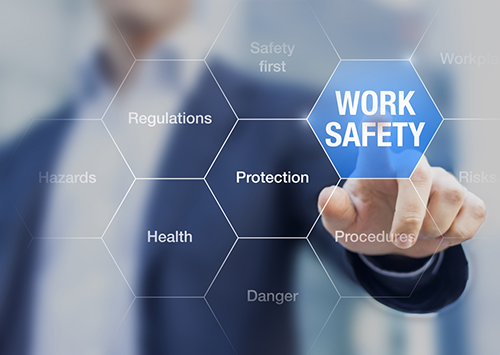The role of health education in preventing biological risk
 Preventing biological risk centres on a principle which is common to risk prevention in general: the right to health. This concept no longer simply means 'absence of disease' and has taken on a multidisciplinary meaning – therefore health can be achieved only through manifold response.
Preventing biological risk centres on a principle which is common to risk prevention in general: the right to health. This concept no longer simply means 'absence of disease' and has taken on a multidisciplinary meaning – therefore health can be achieved only through manifold response.
The evolution of this concept implies the need to define clearly not only the objectives of prevention, but also the best means to achieve them.
Managing biological risk is based on adopting measures of prevention, protection and precaution which, if correctly implemented, prevent 'contact' between biological agents or prevent them from spreading.
But what does 'if correctly implemented' mean? The only effective strategy is raising awareness among healthcare workers and this can be achieved bringing about lifestyle changes and new role models through education.
Isn't it true that through education we can influence knowledge, behaviour, skills and even habits? Yes, it is.
However good 'health education' is not something that can be achieved so easily. When we go about our daily lives we are bombarded with stimuli, which may not always be consistent with our objectives, and risk-specific training is not enough to chip away at our own long-held convictions, the ones we acquired through our own education.
This is why nowadays health education plays a key role in prevention, in order to encourage everyone to make the right decision about their own health. This goes well beyond the mere communication of information, it implies fostering commitment and trust, empowering people and paving the way for primary and secondary prevention.
For all these reasons, this topic has been thoroughly dealt with at the Biosafety and Biosecurity Symposium 2015. The symposium saw a real interest in the different approaches to the issue around the world, which had in common the aim of biosafety, to be achieved through education at school.
The best ally in this endeavour is the concept of 'responsible science', that is safety culture as a component of the broader culture of responsibility within life sciences. This shift in culture has already yielded some positive results, which can be seen by visiting the website of the United States' National Academy of Sciences (http://www.nasonline.org/) . The NAS has been already using this new model for years.
Building a responsible science framework to support and enhance the already-existing culture of responsible and professional conduct in life sciences is the most effective approach for prevention. Ahmet Üzümcü, the Director-General of the Organization for the Prohibition of Chemical Weapons, argued as much: "Our aim is to promote a culture of responsible scientific conduct. This will enable the generations of today and of the future to understand and respect how their work can impact safety."
This means addressing everyone, not only healthcare workers, because until the concept of responsibility is embraced by all, in all facets of life, starting with families, schools and healthcare, we won't be able to build a truly safe future.




